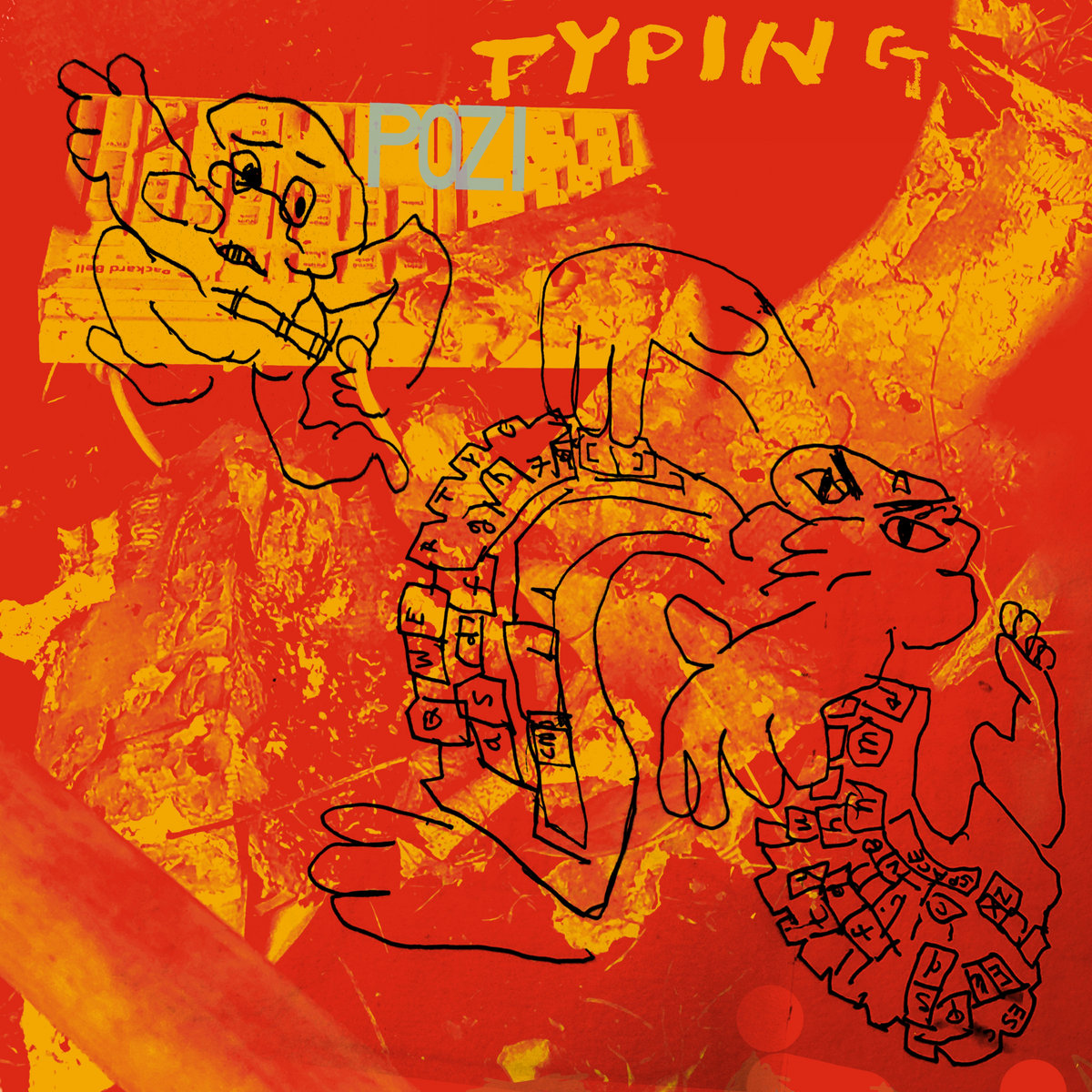London trio Pozi deliver gripping, quivering post-punk with a propulsive formula of violin, bass and drums. Their new EP, Typing, takes the leaded tightness of British post-punk and adapts its customs to make transparent reflections on our age. Typing’s five tracks are like firecrackers, guided by the bursts drawn up by The Fall, Ian Dury, or The Television Personalities, and hit their mark with the sharp eloquence of their violin sounds.
A melancholia takes over from beneath the surface when the violin’s strings fluctuate dramatically and its rhythmic structures starts to swirl into a deep unknown. Vocal duties are shared by the trio, who each deliver lyrics that dig deep into the jittery psyches of 2021 – they refer to the uneasiness of instant messaging, or despair felt in the face of blatant political irresponsibilities.
Back in 2019, Pozi’s debut album PZ1 was a portrait of contemporary London, embedded in but freshly remodelling their 1970s references. Typing sees their work expanding in scope. Heat is added to their wire-strung, clipped-back sound, and its sentiments are refined into a more vivid, cinematic vision. Punk’s instantly poetic energy, in musing about the familiar, is redirected into darker subject matter set against the universally catastrophic backdrops of the last two years. A mindful use of repetition allows the uncanny to emerge from the guise of ‘normalcy’. Versatile violin resonances fold over one another, hypnotic and pristine like Phillip Glass, while their lyrics build gradual tension throughout, allowing meanings to constantly evolve and mutate, a bit like Sparks’ “My Baby’s Taking me Home”.
The violin heard in the opening “Detainer Man” sets a powerful tone straight away, with its flutters coming in cryptically like an oscillator, sometimes squealing and screaming. Its expressions articulately echo lyrical expressions. Charged with a thrusting rhythm and thick baseline, the sounds altogether tell the story of a brain-dead police officer who mechanically detains citizens.
While the starkness of the first song conveyed a jerky confusion, the following “Free Day” adds meaning to “freedom of conscience”. A repeated crystalline violin riff has a trance-like effect and frolics in a fresh world where complicated details have somehow managed to melt away, even in a busy age of information. But ambiguous lyrics – “scheduled botched away / pass away the blame”; “freedom to let go / and say goodbye to souls I used to know” – subtly suggests a price in the privilege of a cleaner conscience.
The energy of “Typing” then suddenly makes this discomfort prominent, pressurising its lyrics – “back and forth, back and forth” – with the silvery edge of its bassline. Alongside its narrations, the violin pulls us between chasms of anxiety, until in “Sea Song”, the EP’s most elegiac piece, it draws us into an ocean of sorrow. The song’s violin melody glides mournfully, portraying the grave atmosphere of a coming disaster, trapping us in a moment of fear as we realise that everything we know may disappear.
In Typing‘s final track, “Cover It Up”, the emotions are sealed off. It talks about a lack of responsibilities taken by those in charge – “your dirty secrets, swallow them up”. Referring back to the kind of dire concerns felt in “Sea Song” – that stomach-jolting feeling we all unfortunately shared at the start of 2020 – it critiques the cold ignorance that always ensues: “The storm was foretold. The end is expected. The deeds were directed.”
In one way or another, much of recent music has been trapped in the bitter grievances of our strange recent circumstances. Pozi’s evolving artistry however, highlighting the psychological specifics of our current lives with heightened focus, reaches out beyond its seemingly fixed frames. With the number of current London post-punk bands incorporating classical instruments, it may be tempting overlook Pozi’s effectiveness, but many moments on Typing suggest an open-ended take on the tools they are trustfully provided with. They are virtuosos of our shared, unsaid thoughts, here to guide us through the coming years.

